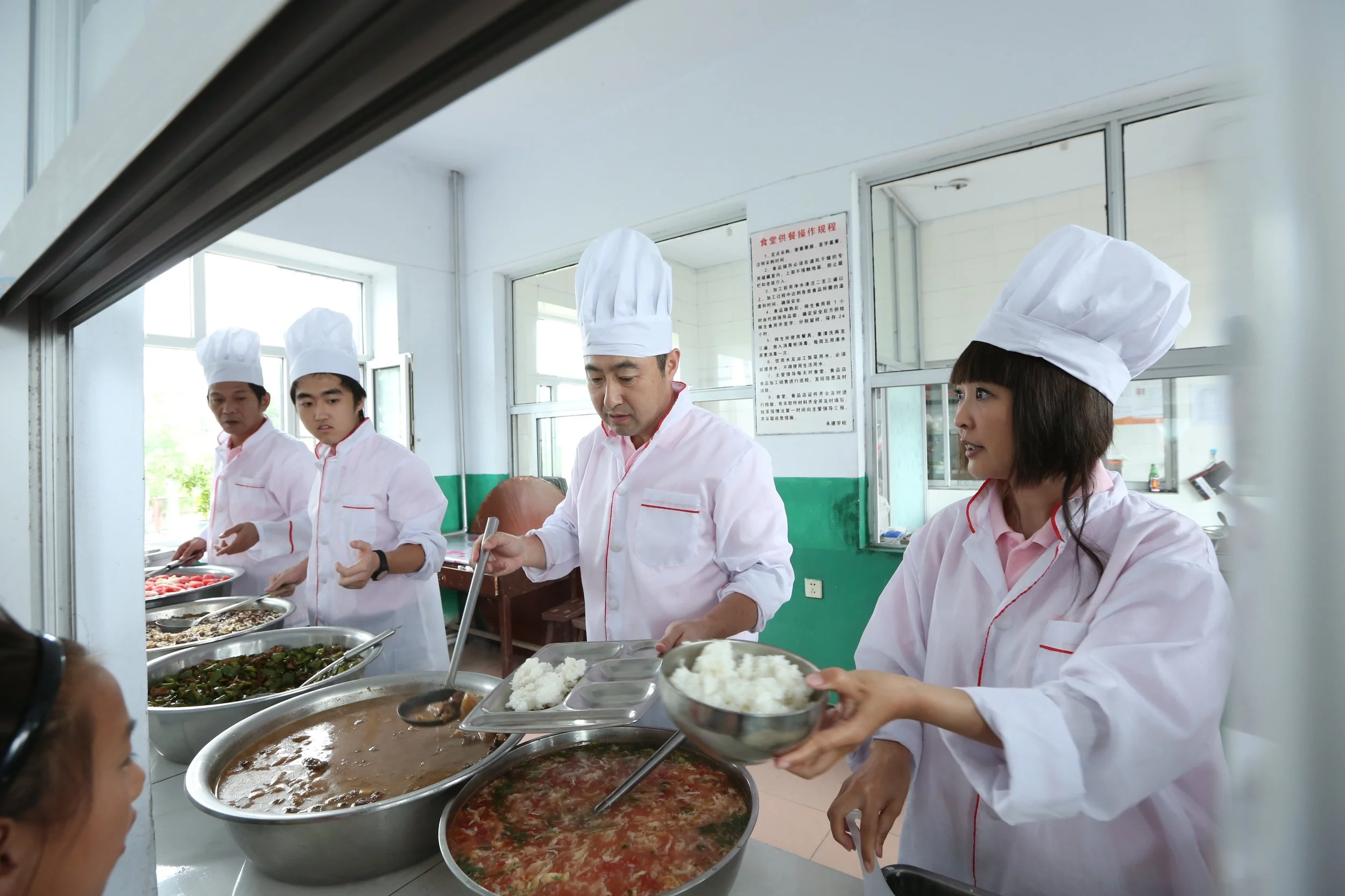
CJ Wang Foundation
Our Work
-

Supporting Innovation
We support the development of Maker Space and Innovation Center facilities at schools and universities, initiatives that provide students with the space and equipment to enhance exploratory learning, design, and creation.
-

Athletics
As a golf family, the Wang’s steer foundation golf initiatives to inspire the sport’s next generation by fostering international exchange, educational opportunity, and elite competition for young golfers.
-

Joyoung Foundation
For nearly three decades, the Joyoung Foundation leads initiatives in rural China to provide the facilities, equipment, and knowledge training to feed students meals needed to help them reach their full potential.
Supporting Innovation
The CJ Wang Foundation supports the development of Maker Space and Innovation Center facilities and equipment at schools and universities, initiatives that provide students with the space and equipment to enhance exploratory learning, design, and creation.
Western Reserve Academy - Wang Innovation Center
Our first Maker Space, the Wang Innovation Center (WIC), was established in 2017 at the Western Reserve Academy in Hudson, Ohio. The WIC features an array of advanced equipment and tools for students to engage in hands-on learning, the process of making, and finding innovative ways to solve problems. A snapshot of projects at the center includes students building circuit boards, building wood window panels for the school’s chapel, building vehicles from scratch, jewelry design and creation, building 3D printers, robotics, and much more.
WIC has redefined the teaching and learning experience, empowered students and faculty, attracted engagement from the broader community, and earned national and international recognition as a leading center for innovation. In the words of WRA staff, the facility has been transformational in terms of curriculum, teaching and learning, recruiting, and community building. “It is the most significant financial gift of the past 25 years to WRA.”
Image: Andrew Brodhead
The Stanford Robotics Center, first opened in 2024, was initiated by a donation from the Wang Family. As part of the family’s commitment to educational spaces that foster innovation, the Wang’s provided this support to one of the world’s leading universities in innovation to help keep its facilities, research and student output at the cutting edge of robotics technology.
The CJ Wang Foundation provided support for the establishment of the Domestic Suite at the Stanford Robotics Center. The Domestic Suite focuses on developing robotic systems to assist with companionship, human augmentation, household chores, and smart home environments.
Stanford University has been at the forefront of robotics since the 1960s, with groundbreaking efforts like the “Stanford Cart” an early robotic rover prototype for lunar missions, “Shakey,” one of the world’s first artificially intelligent robots with computer vision, and early robotic arms that would eventually transform factory floors.
The new robotics center serves as an innovation lab that fosters collaboration between university departments, teams, research institutes, government agencies, and commercial partners.
Stanford Robotics Center
Fostering Athletes
Competitive sport is an important facet of youth development that leads to camaraderie, confidence, and the potential for scholarships and professional careers. As a “golf family”, the Wang’s steer the foundation’s golf initiatives to inspire the sport’s next generation by fostering international exchange, educational opportunity, and elite competition for young golfers.
The CJ Wang Foundation fosters more international participation in US golf, especially bridging exchanges between golfers in Greater China with the US by sponsoring golfers from both regions to play in each other’s tournaments. The foundation provides opportunity for more young golfers to experience elite competition through sponsorship of American Junior Golf Association (AJGA) and United States Golf Association (USGA) tournaments. It also facilitates young golfers to receive education while developing professional golf potential through academic and athletic scholarships.
Golf Initiatives
Joyoung Foundation
As the main arm of CJ Wang’s philanthropy in China, the Joyoung Foundation has been operating initiatives in China to improve nutrition in rural schools for over 30 years. With many rural schools in China lacking quality, commercial grade kitchen equipment to provide students with nutritious meals, the Joyoung Foundation has spearheaded multiple initiatives to provide the facilities, equipment, and knowledge training to feed students meals needed to help them reach their full potential.
The flagship project of the Joyoung Foundation is its Joyoung Hope Kitchens, which include commercial scale kitchen equipment for steaming, frying, storage, water purification and more as well as skills training for kitchen staff. The foundation has built over 1600 Joyoung Hope Kitchens in schools across China that have helped provide warm, nutritious meals for over 600,000 students each day. The rates of students eating at school where the Joyoung Hope Kitchens were installed increased by 34%, while malnutrition rates decreased by nearly 15% and per-capita energy consumption decreased by 18%.
In 2024, the Joyoung Foundation announced a commitment of at least another RMB 110 mil ($15.3 mil) to continue these programs across China for the next ten years.




